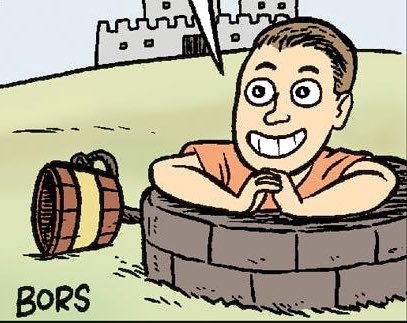

Removed by mod


Removed by mod


In fairness, Trump’s DOJ has allowed Hillary to remain at large


I have information that could lead to the arrest of Hilary Clinton
~ Charlie Kirk, mere hours before his death


Removed by mod


Removed by mod


Removed by mod


I’m not sure offhand what body does this normalization and what population they use, but thankfully, that knowledge doesn’t matter.
:-|
God damn, I hate you people
It really is painful to read this kind of arrogant ignorance


Removed by mod


Removed by mod


Someone who isn’t willing to hustle and grind for my benefit


they never bothered participating in
I’ve never met a person proud not to vote who hasn’t spent a few decades voting to no good effect.
I do hear a lot of outspoken voters insist that gerrymandering doesn’t matter and disenfranchisement is fake news, then blame a catastrophic defeat on $50 in Facebook ads
I also get an endless earful from these same folks that voters are lazy, gullible, racist, and stupid.


90% of the time it’s just whineing
That’s certainly the internet refrain.
Weird that the people most enthusiastic about politics always gather together to accuse one another of not participating. But it sure does feed one’s sense of smugness to say it.


Removed by mod


Are you, right now running for office or supporting someone who is?
Yes.
Are you doing anything IRL to get someone progressive to win the primary
Yes.
If you throw your hands up in the air and declare defeat in advance, you’re doing the establishments work for them.



Unless you’re just being sarcastic
I’m being sarcastic.
Neoliberals lose and it’s because leftists didn’t show up and vote for the right person.
Progressives win and it’s because leftists did show up and voted for the wrong person.
Cause I also disagree with you on Dean Phillips
He was an awful nobody who ran a vanity campaign that flamed out before New Hampshire polls closed. Still somehow more qualified than Biden, given that he wasn’t senile.
I’m more just flabbergasted that Biden insisted he could go all the way back in '23, closed out any serious discussion of a primary, and then dropped out after the first fucking debate. Had he put in for retirement after one term, he could at least have left the stage honorable. Instead, he queued up Harris - and the rest of the party - for crushing defeat.


he was left wing but then they changed what left wing was
An acorn of truth in this story. This isn’t LBJ’s party by a long shot. People would be screaming “Tankie” at FDR if he were alive today.


Removed by mod


PRIMARIES TOO!!!
The big mistake Leftists made was not voting in the 2024 Democratic Presidential Primary. Dean Phillips was electable if you’d voted for him.
The second biggest mistake Leftists made was turning out in the NYC Mayoral Election. You just cost yourself four years of a Golden Age under Andrew Cuomo, idiots.


just sayin that I made more money during Biden’s term than any other
That’s crazy, given how the market has skyrocketed in the last year.
crypto going down
Curiously, Trump’s always been awful for crypto.
Removed by mod